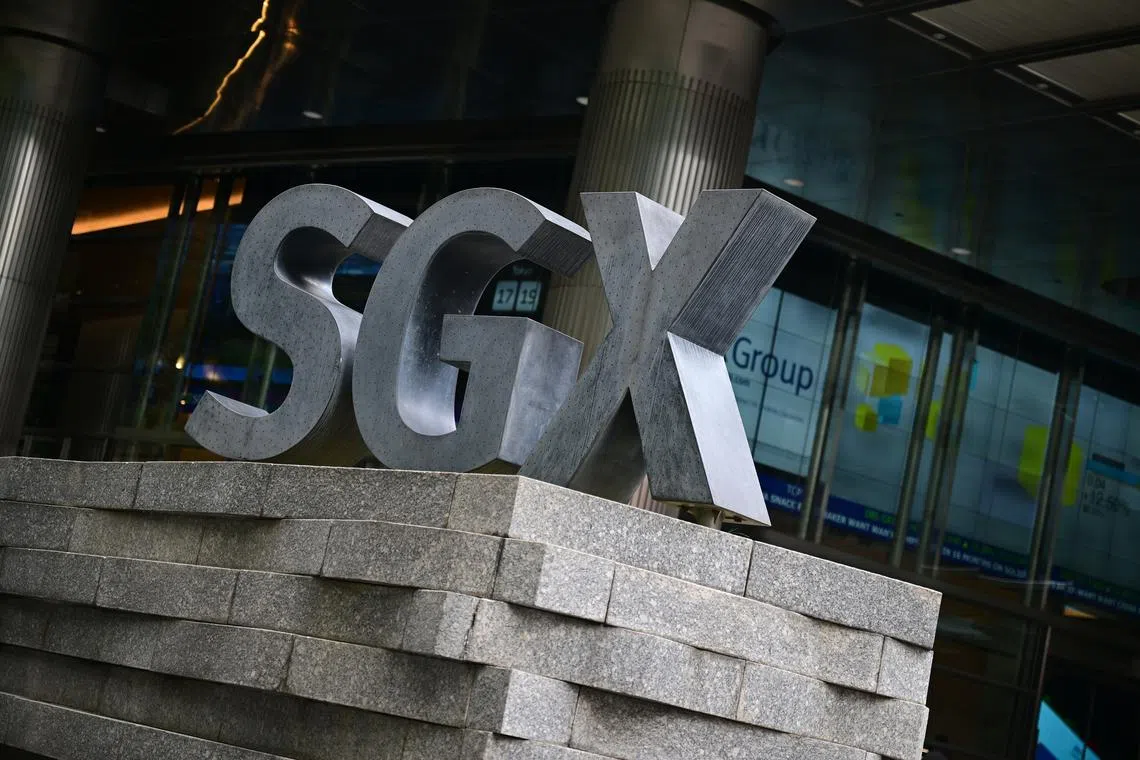Singapore shares end lower, in line with regional indexes
Sign up now: Get ST's newsletters delivered to your inbox

Across the broader market, decliners outnumbered advancers 275 to 194, with 890.1 million shares worth $1.1 billion changing hands.
PHOTO: ST FILE
SINGAPORE - The Straits Times Index (STI) faltered on Dec 17, mirroring declines across the region.
It ended down 0.6 per cent, or 21.1 points, at 3,799.93.
Across the broader market, decliners outnumbered advancers 275 to 194, with 890.1 million shares worth $1.1 billion changing hands.
The trio of local banks closed lower on Dec 17, with UOB leading the lot, falling 1.3 per cent, or 50 cents, to $36.70. OCBC Bank dropped 0.3 per cent, or five cents, to $16.95. DBS Bank shed 0.2 per cent, or 10 cents, to $44.21.
The top gainer was Frasers Centrepoint Trust, up 1 per cent, or two cents, to $2.12. The top loser was Yangzijiang Shipbuilding, down 2.1 per cent, or six cents, to $2.82.
Across the region, major indexes continued their declines, with the Kospi falling 1.3 per cent and the Nikkei 225 dropping 0.2 per cent. Hong Kong’s Hang Seng Index ended 0.5 per cent lower, while the Kuala Lumpur Composite Index lost 0.6 per cent.
Wall Street has surged as the Federal Reserve is expected to trim interest rates by 25 basis points. A backdrop of the US economy’s expansion, the most vigorous since October 2021, could ignite “animal spirits” in a post-election frenzy, said Mr Stephen Innes, managing partner at SPI Asset Management.
This is in contrast to the Asian markets, which have faltered, disappointed by China’s latest data releases. The cautious stance from investors is further compounded by unsettling political developments in the major economies, including the unexpected resignation of Canada’s Finance Minister and the German Chancellor losing a vote of confidence.
“The US market atmosphere was decidedly upbeat, especially the Nasdaq, which soared to its 36th record close of the year, buoyed by the enduring ‘there is no alternative’ sentiment,” said Mr Innes. THE BUSINESS TIMES


